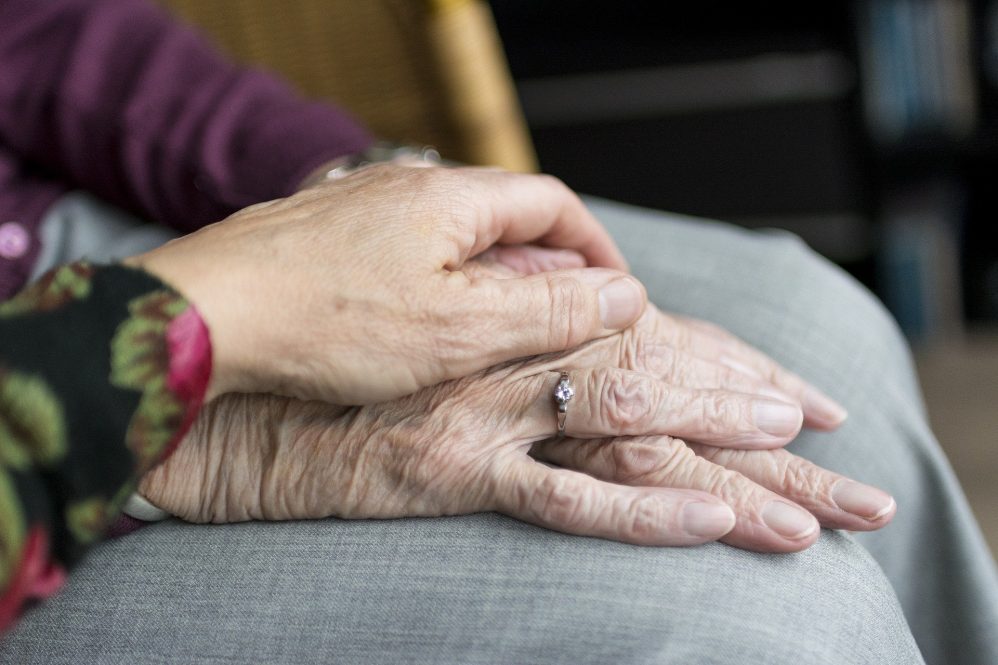As the number of older Americans rapidly increases, states are reevaluating how they care for older adults living with health-related limitations. A major goal of these efforts is to develop home and community-based services (HCBS) through Medicaid and other public funding sources to help keep older adults living independently in their own homes rather than in facilities like nursing homes.
HCBS programs provide personalized care and other services at home to allow people to live independently even when they need assistance with everyday personal tasks. One population frequently targeted for HCBS programs are older adults who have been diagnosed with Alzheimer’s disease and related dementia (ADRD) and those with undiagnosed cognitive deficits.
Professors Richard Fortinsky and Julie Robison from UConn’s School of Medicine have received a $2.2 million grant from the National Institute on Aging, part of the National Institutes of Health, to determine how well state HCBS programs provide care for older adults living with ADRD.
This is research with potentially wide impact, given the prevalence of, and growth in, Alzheimer’s diagnoses: currently, some 5.8 million Americans are living with Alzheimer’s disease, which, prior to 2020, was the sixth-leading cause of death in the United States. As the American population ages rapidly, Alzheimer’s diagnoses are growing just as quickly: by 2050, according to the Alzheimer’s Association, nearly 14 million Americans will have the disease.
While the work of Fortinsky and Robison will focus on the state of Connecticut, their findings will help other states rethink the effectiveness of care for older adults receiving HCBS.
Studies have shown ADRD is associated with many adverse health-related outcomes such as higher risk of emergency department visits, hospitalizations, and post-acute or long-term admission to nursing homes. However, researchers do not know whether and how ADRD and cognitive impairment severity are associated with adverse outcomes for adults receiving services from publicly funded HCBS programs.
Robison and Fortinsky will explore how racial and ethnic diversity, and the strength of informal caregiver support systems, affect adverse outcomes for older adults with and without ADRD in HCBS programs.
They also will determine how ADRD, race, ethnicity, and strength of informal care are associated with self-identified goals of care among older adults who receive support from HCBS programs.
They will study a statewide population enrolled in Connecticut’s Home Care Program for Elders, which provides HCBS to a racially and ethnically diverse population of adults 65 and older who live at home but have numerous health-related limitations.
The research team at the UConn Center on Aging will share their findings with state Medicaid officials and other stakeholders in Connecticut. They will also report their results to officials in other states who run HCBS programs for older adults.
“We are excited about this opportunity to use statewide data from Connecticut to learn much more about how older adults from diverse racial and ethnic backgrounds are affected by Alzheimer’s disease and other types of dementia,” Fortinsky and Robison say. “By incorporating direct input from participants about their own goals of care, we hope to inform policy makers and other stakeholders in Connecticut and elsewhere about how to plan for new care models to address the needs of this growing population and improve health-related outcomes for them and their families.”
Julie Robison holds a Ph.D. in human development and family studies from Cornell University. She completed her postdoctoral training at Yale University School of Medicine. Her research interests include long-term services and supports, family caregiving, dementia and depression.
Richard Fortinsky holds a Ph.D. in medical sociology and gerontology from Brown University. His research interests include care for older adults with cognitive vulnerability, rehabilitation for older adults after hip fracture, family caregiving, functional status measurement, and incorporation of proven interventions for older adults into everyday clinical care.



